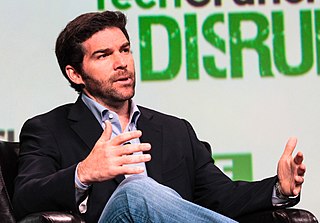A Quote by Michael Dell
VMWare, as you know, remains a public company, and Secure Works is also a public company. And it's possible in the future that within the group, we could have other public companies.
Related Quotes
Mandatory auditor rotation is designed to address a potential conflict of interest between a public company and its auditor. Because an auditor is hired and paid by the public company it audits, the auditor's desire to maintain a good relationship with its client could conflict with its duty to rigorously question the client's financial statements.
It is not necessary for the politician to be the slave of the public's group prejudices, if he can learn how to mold the mind of the voters in conformity with his own ideas of public welfare and public service. The important thing for the statesman of our age is not so much to know how to please the public, but to know how to sway the public. Those who manipulate this unseen mechanism of society constitute an invisible government which is the true ruling power of our country.
Profitability, growth, and safeguards against existential risks are crucial to strengthening a company's long-term prospects. But if these three factors constitute a company's 'hard power,' firms also need 'soft power': public trust and acceptance, won by fulfilling a company's social responsibility.


































